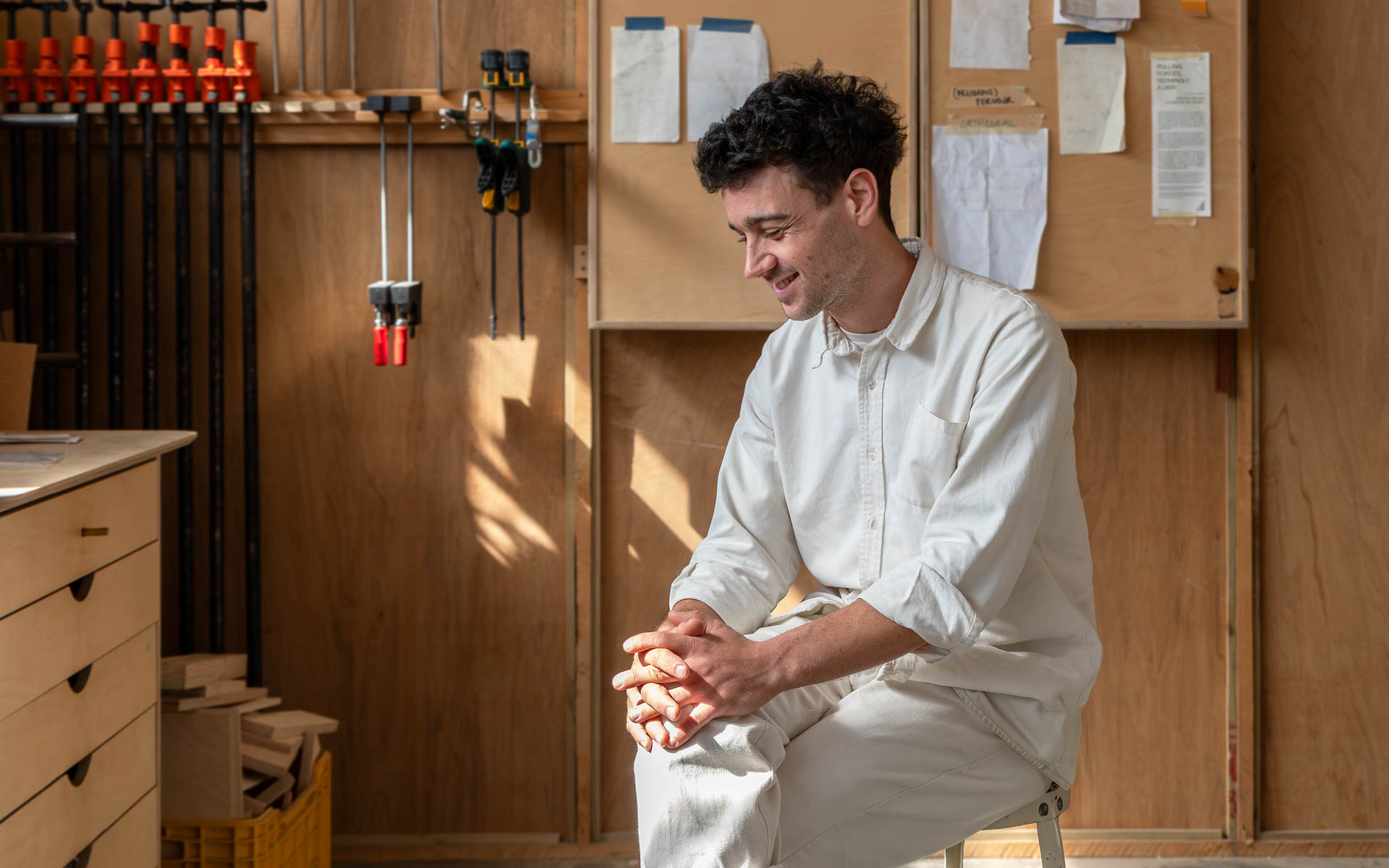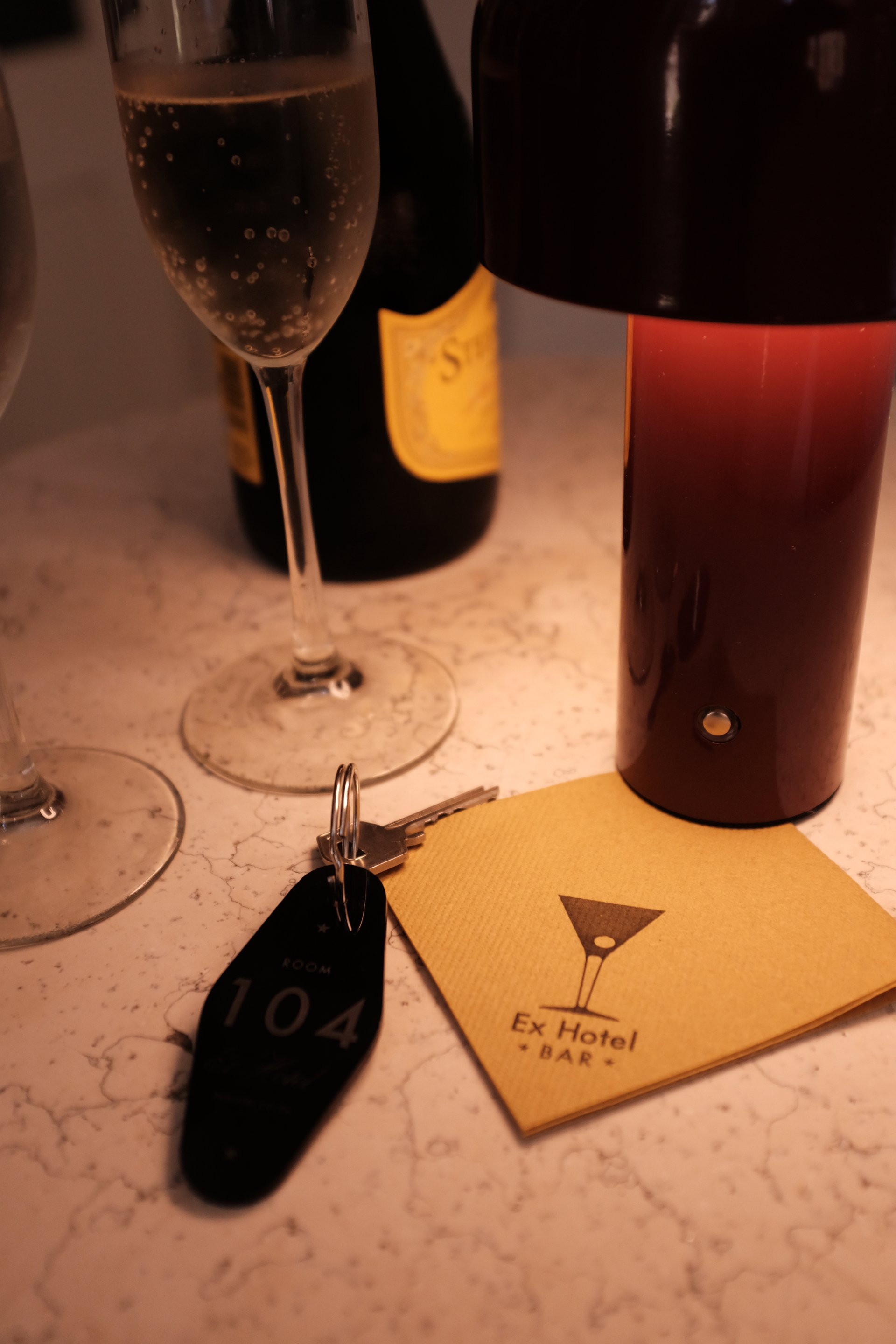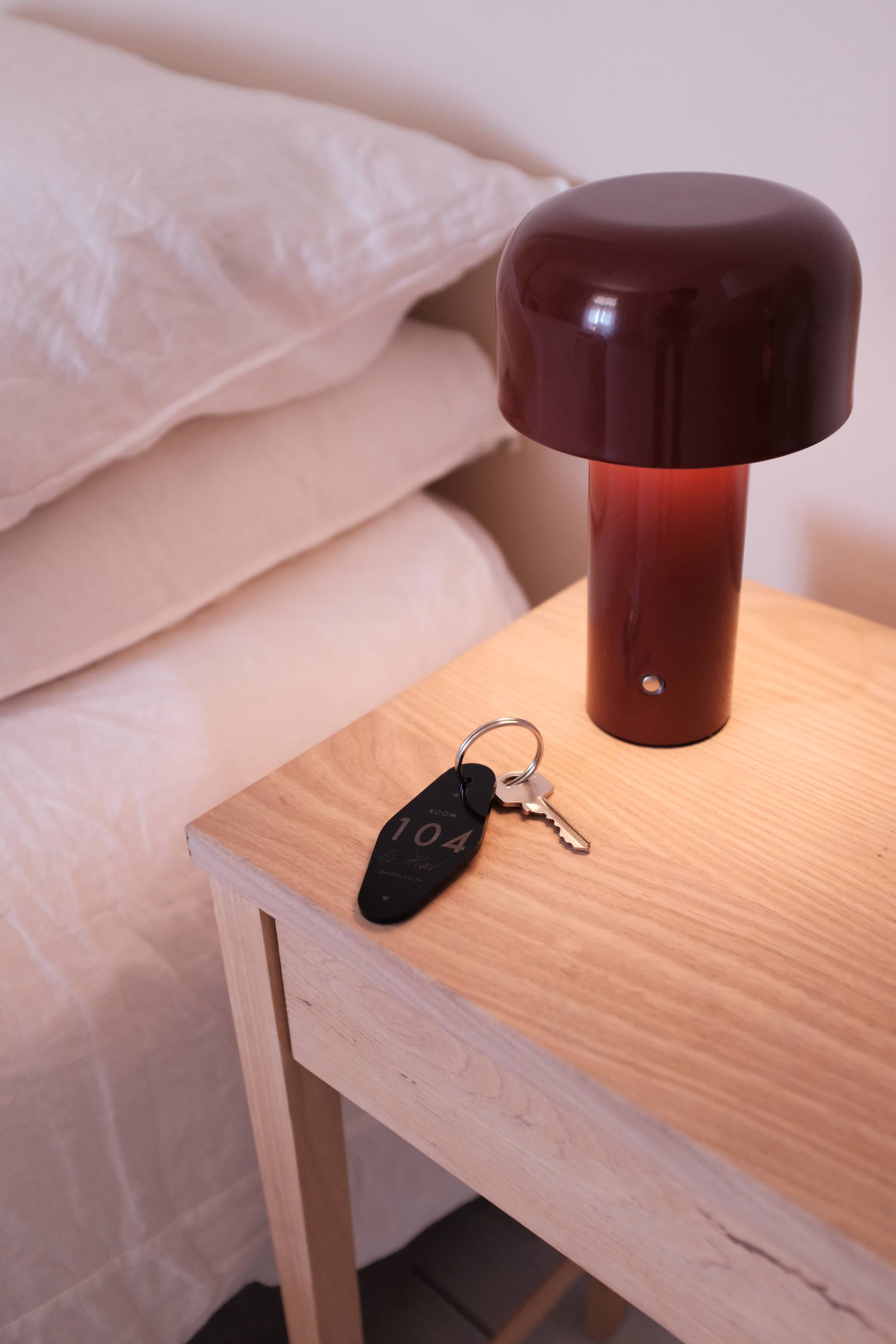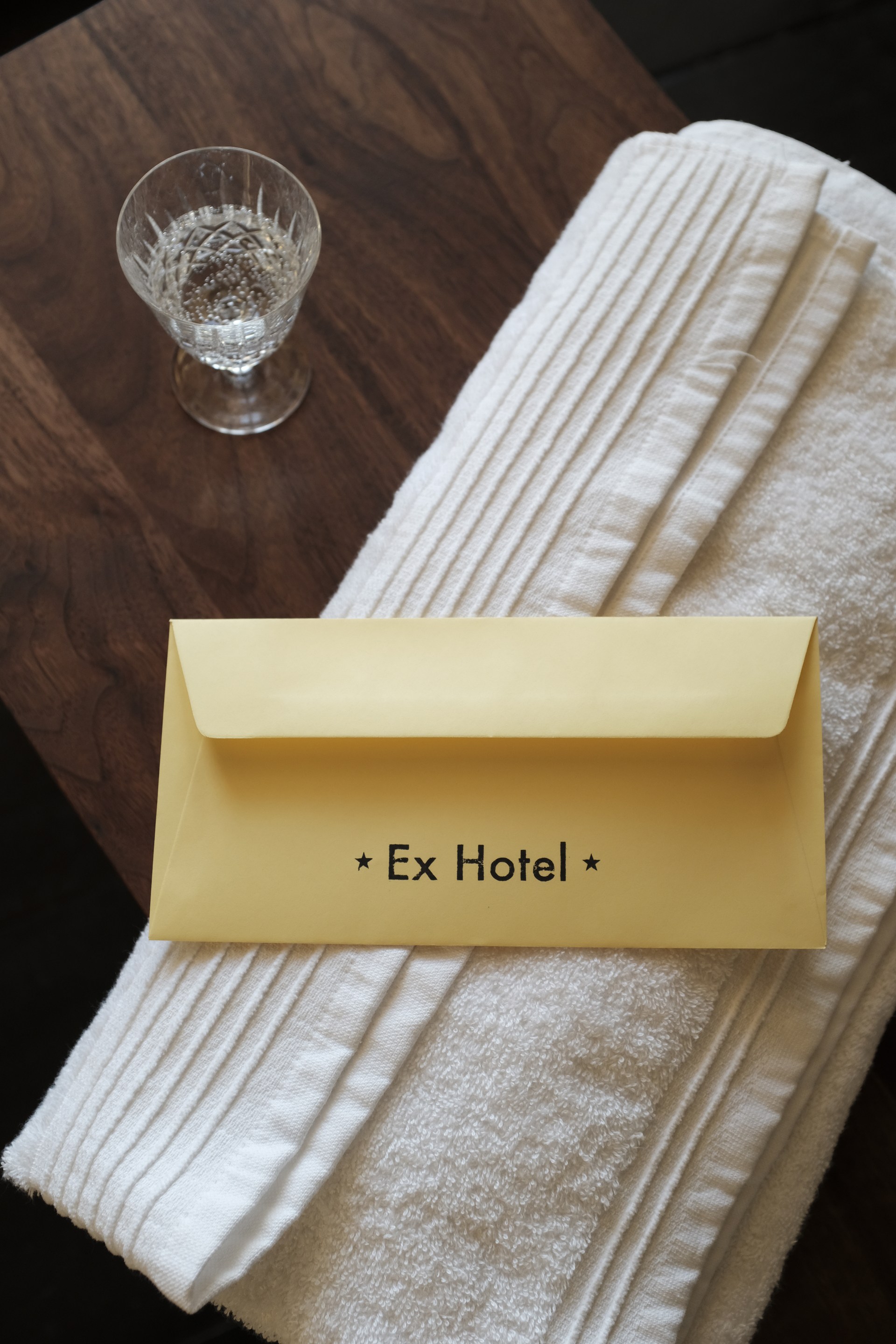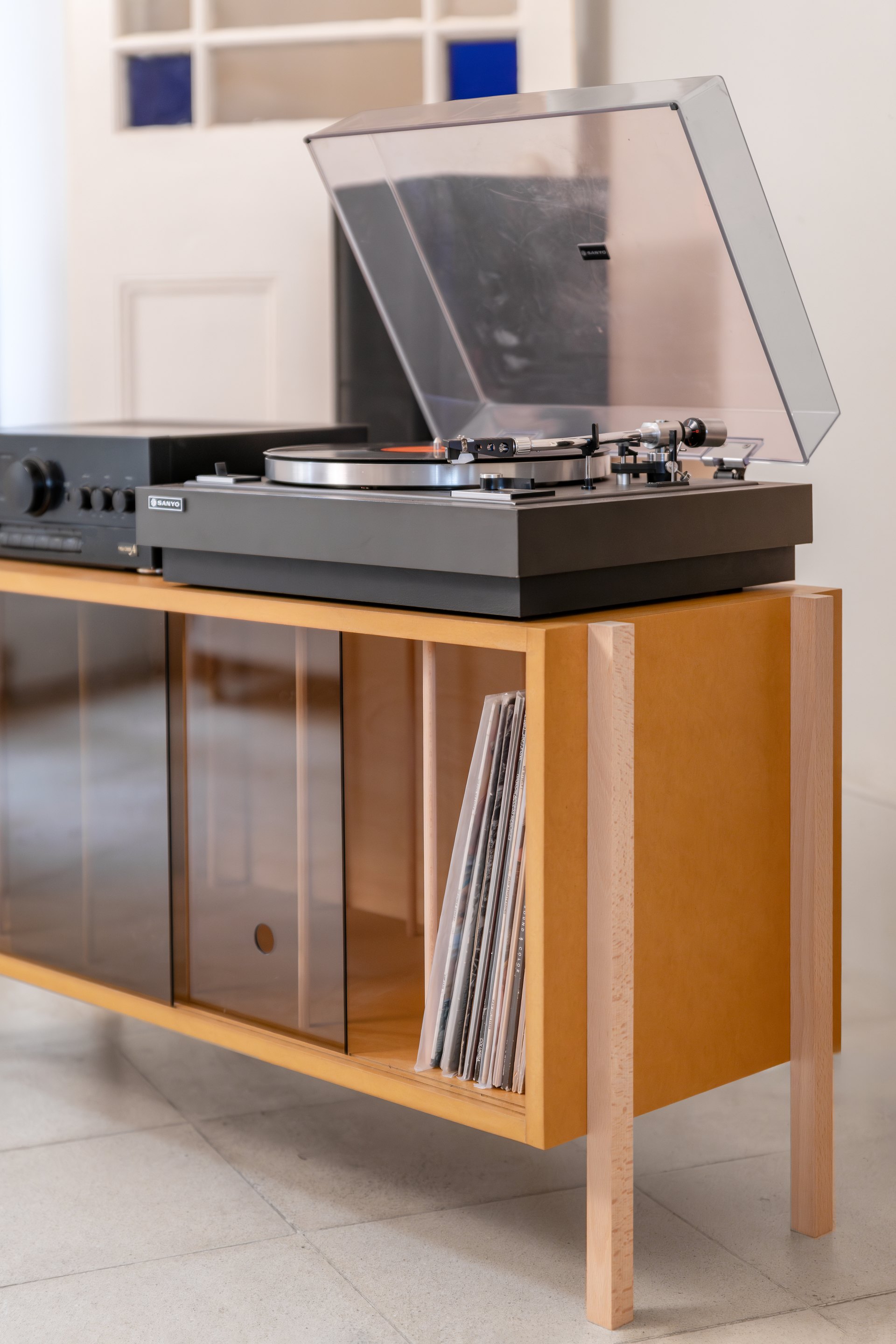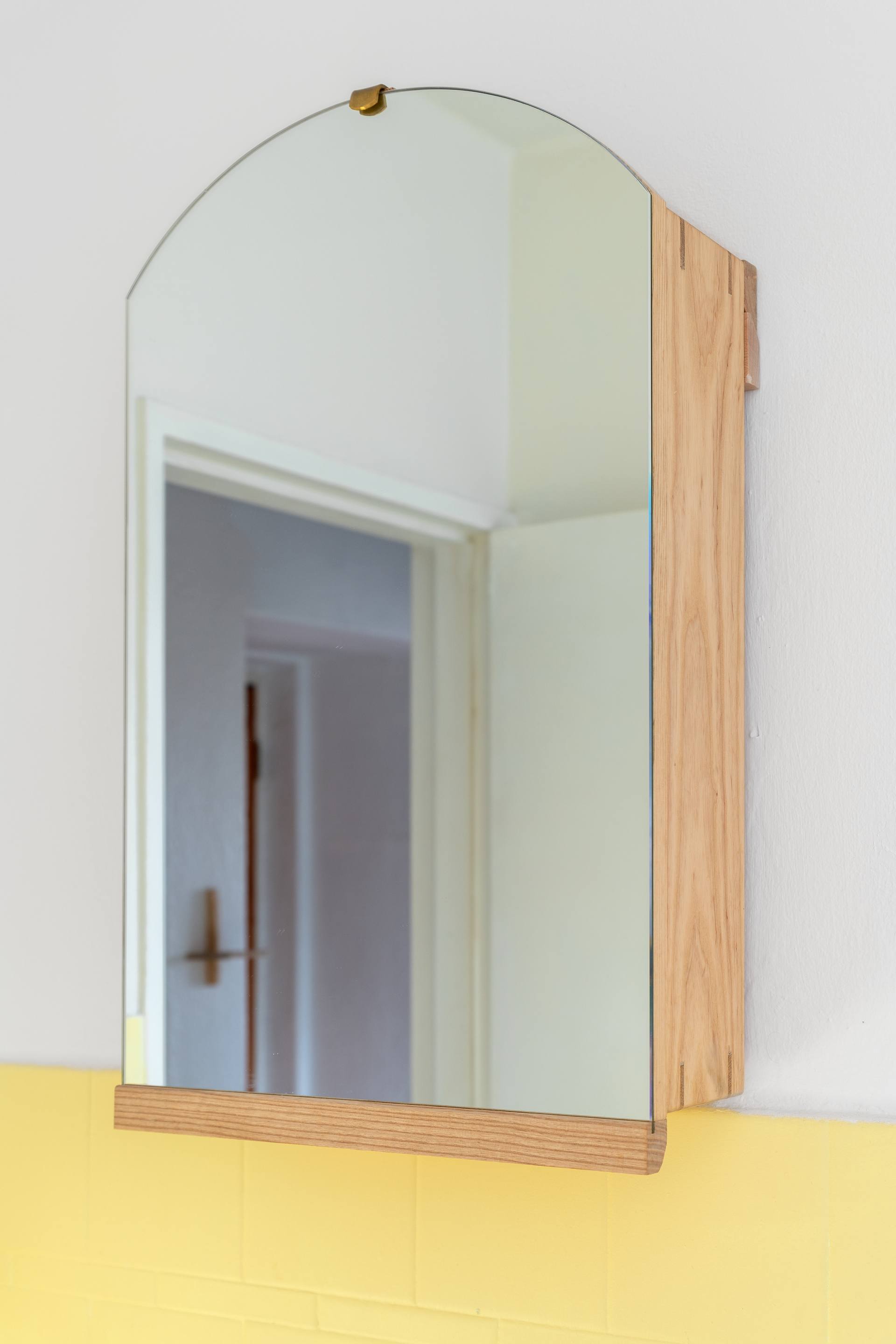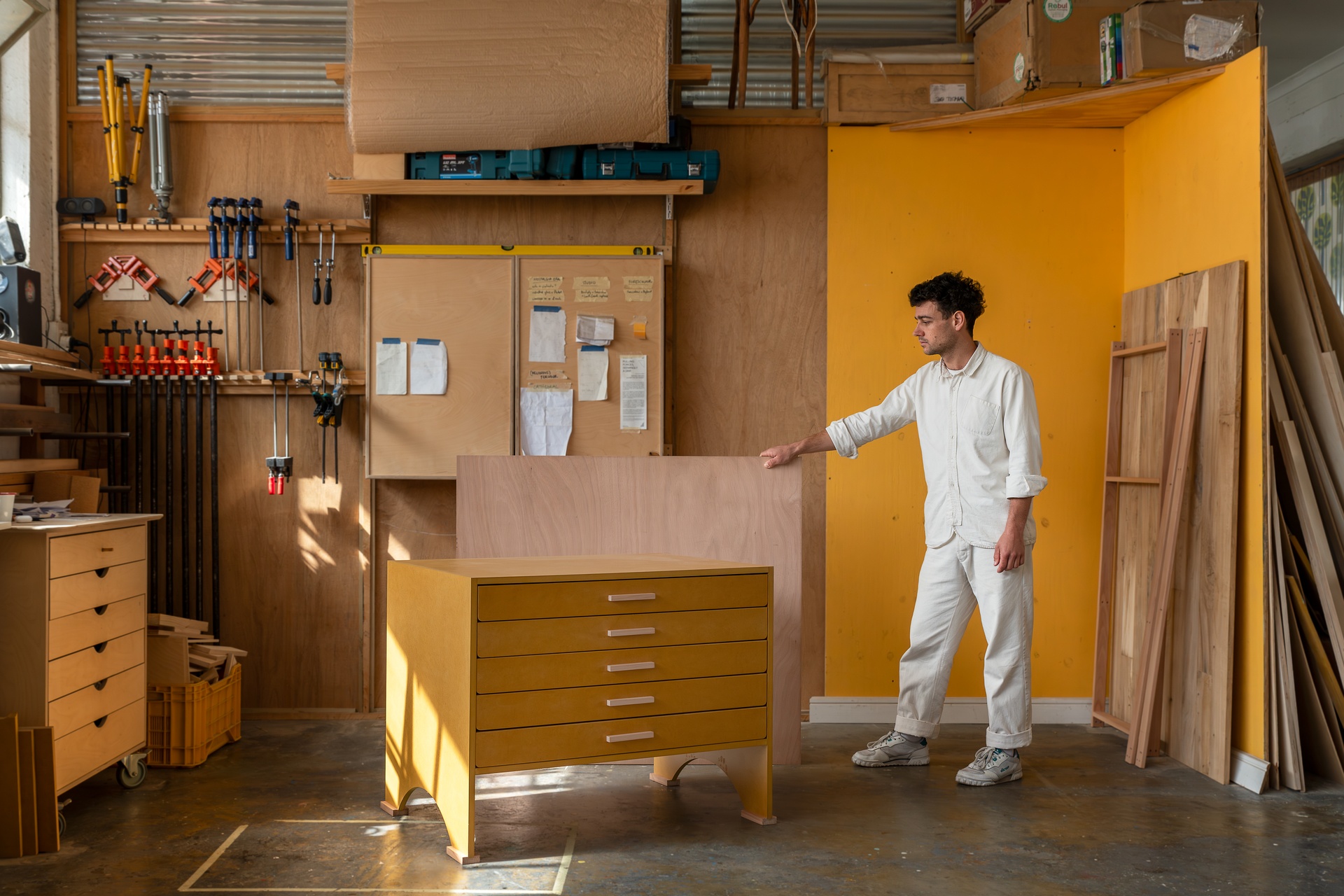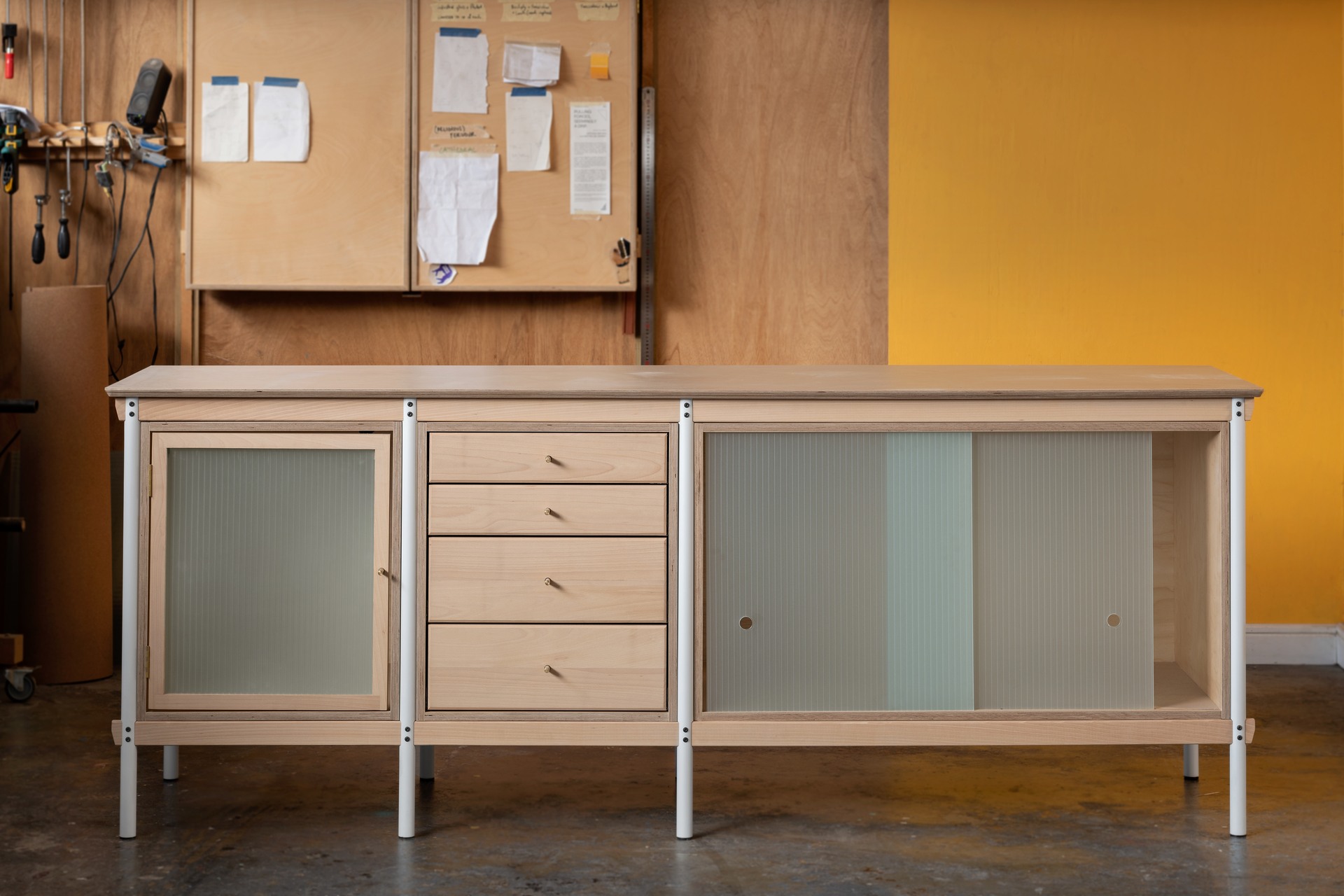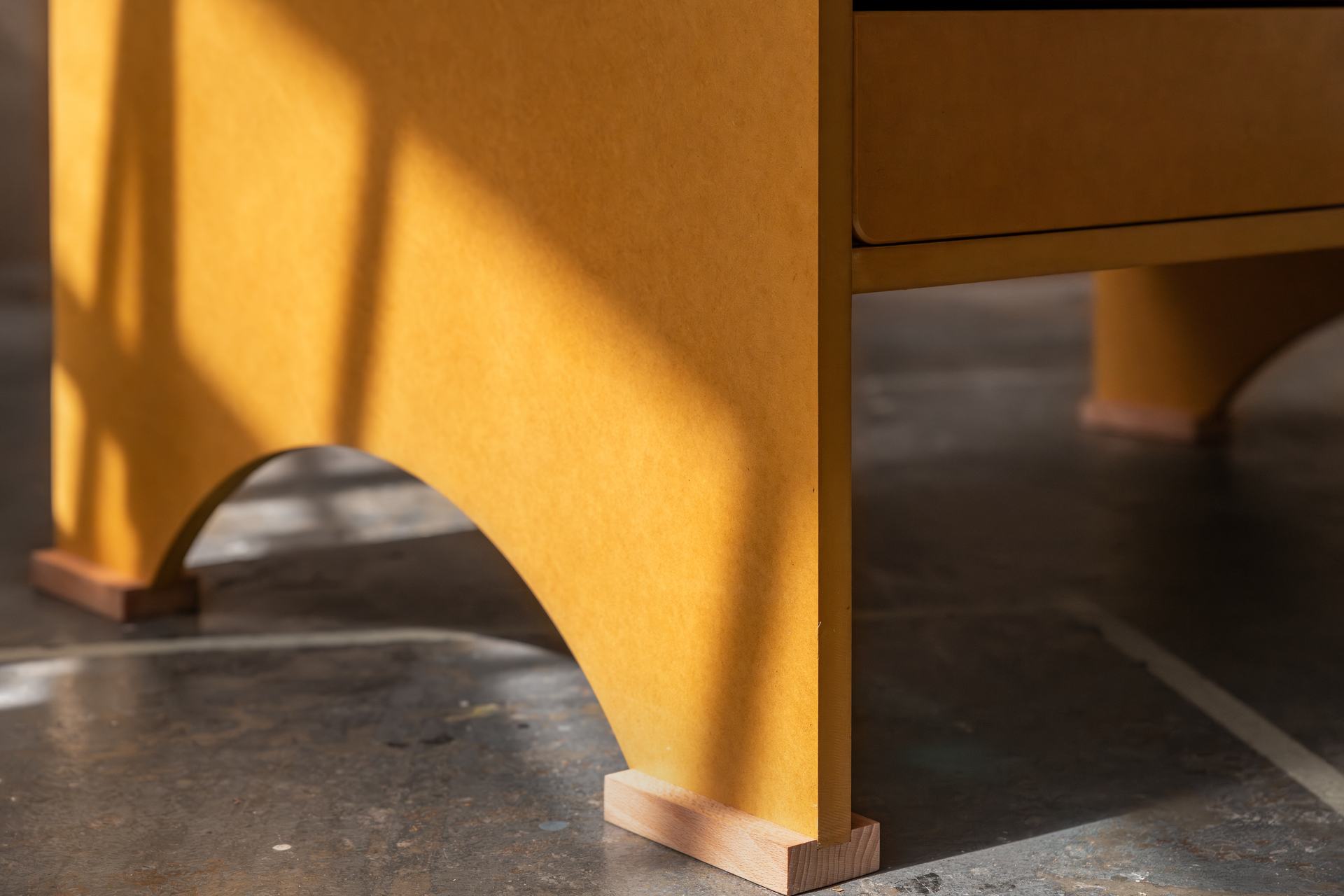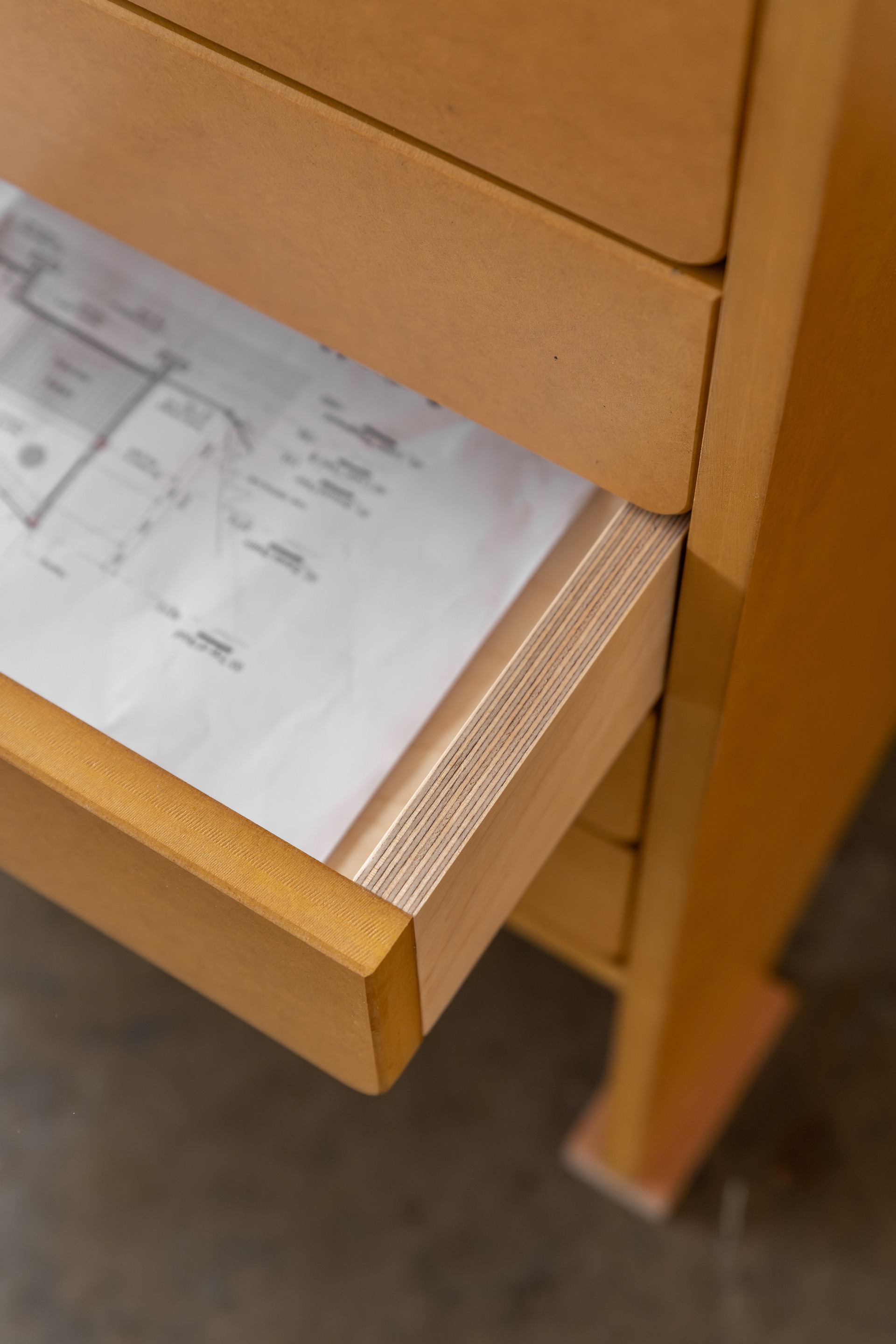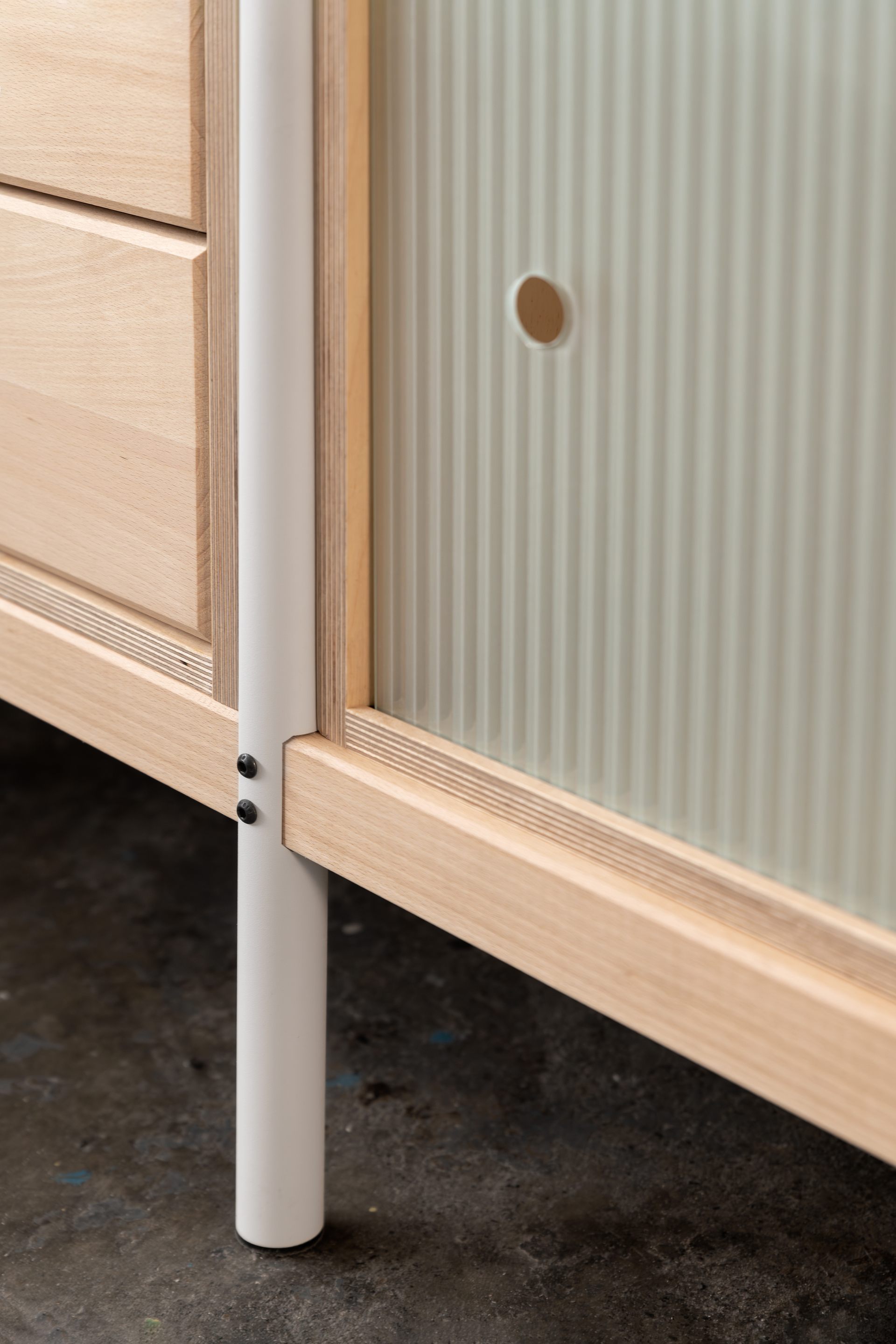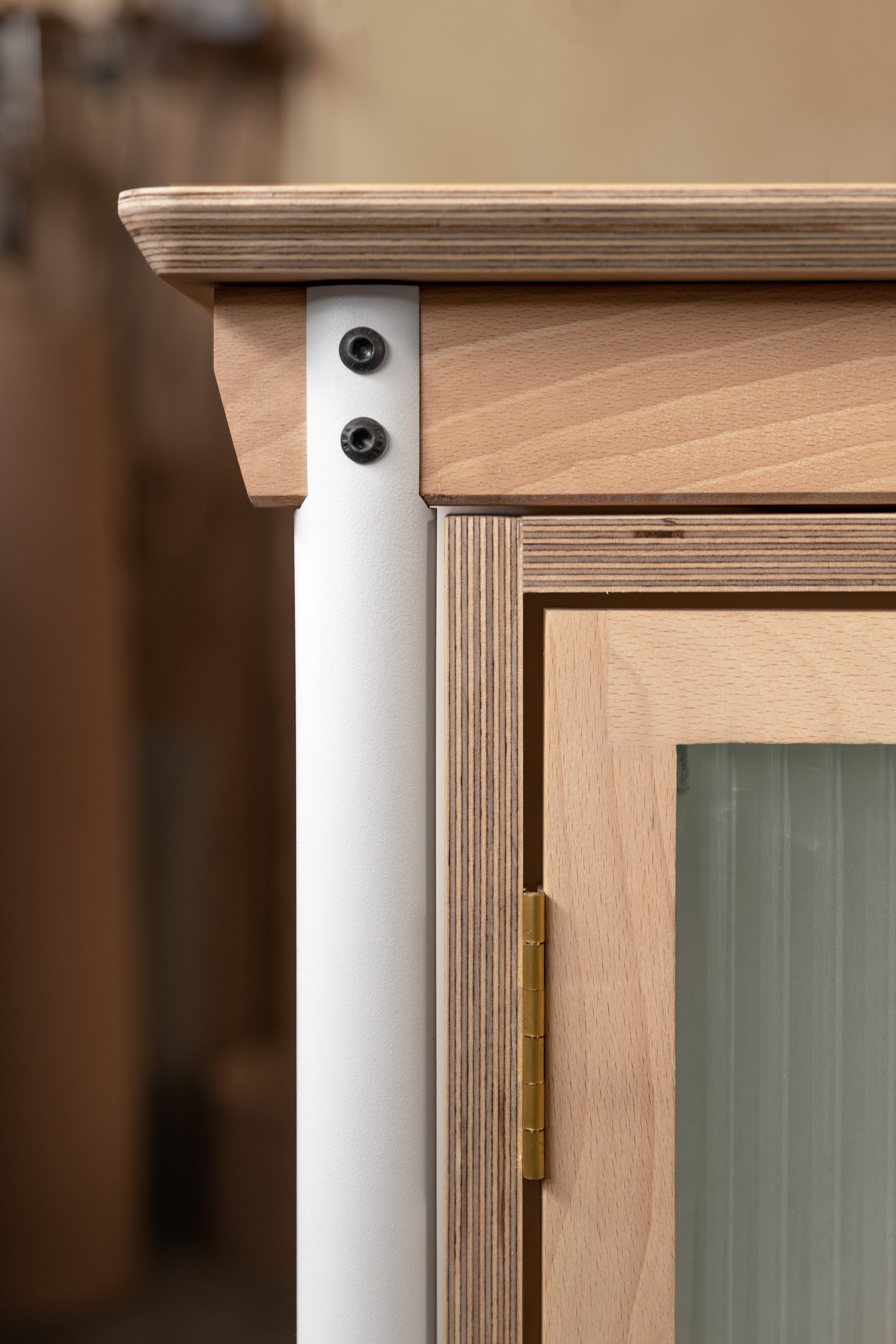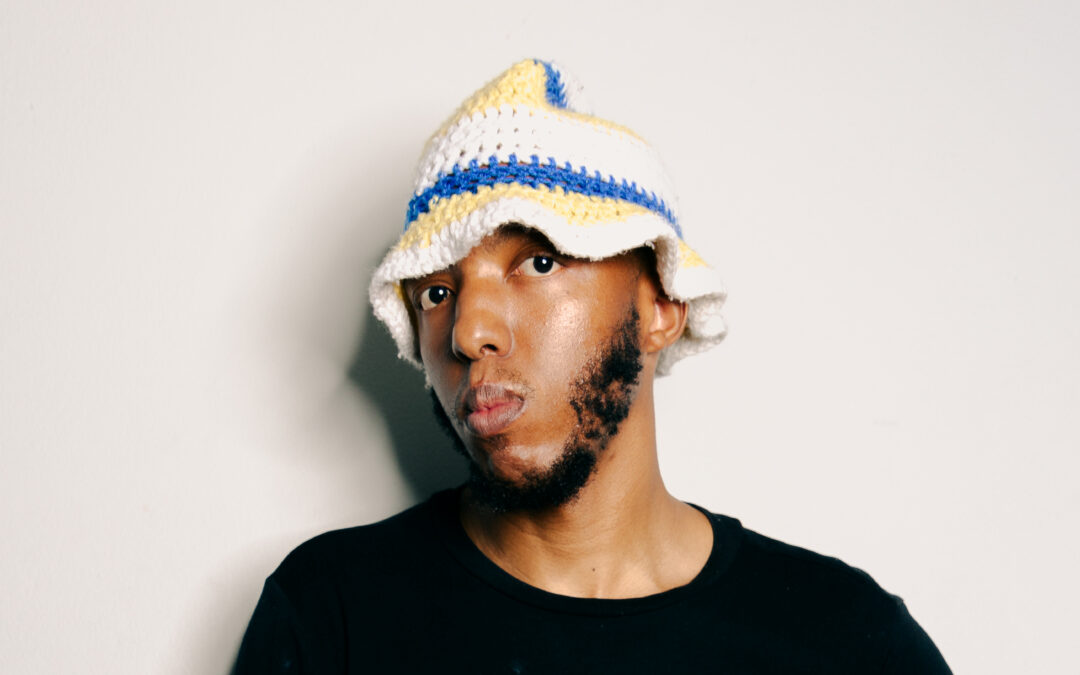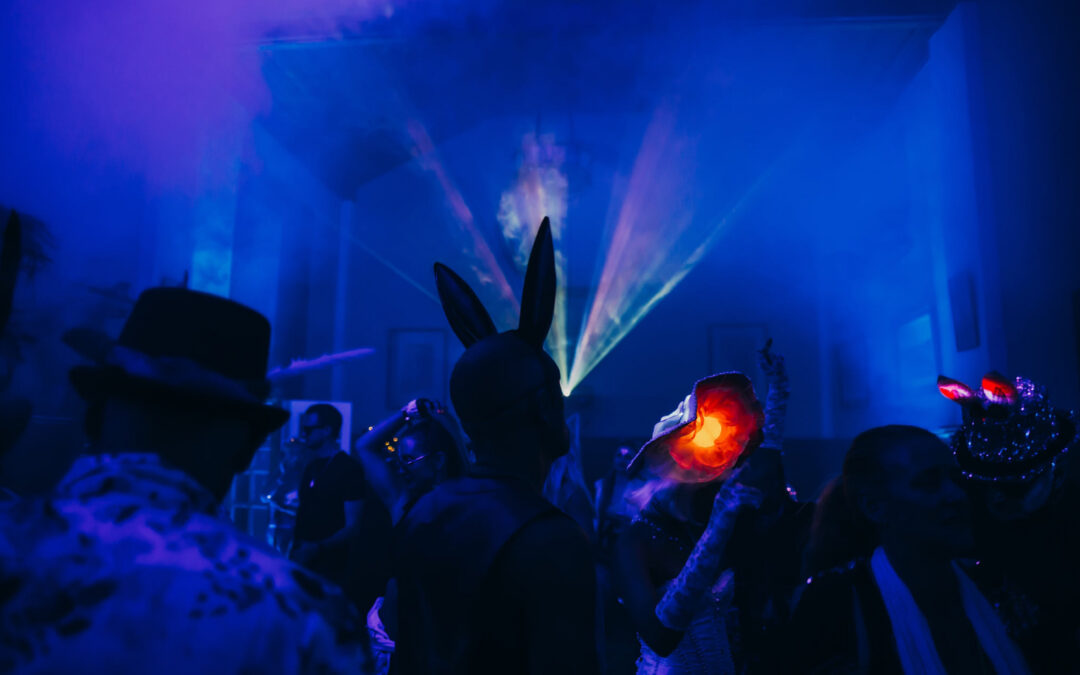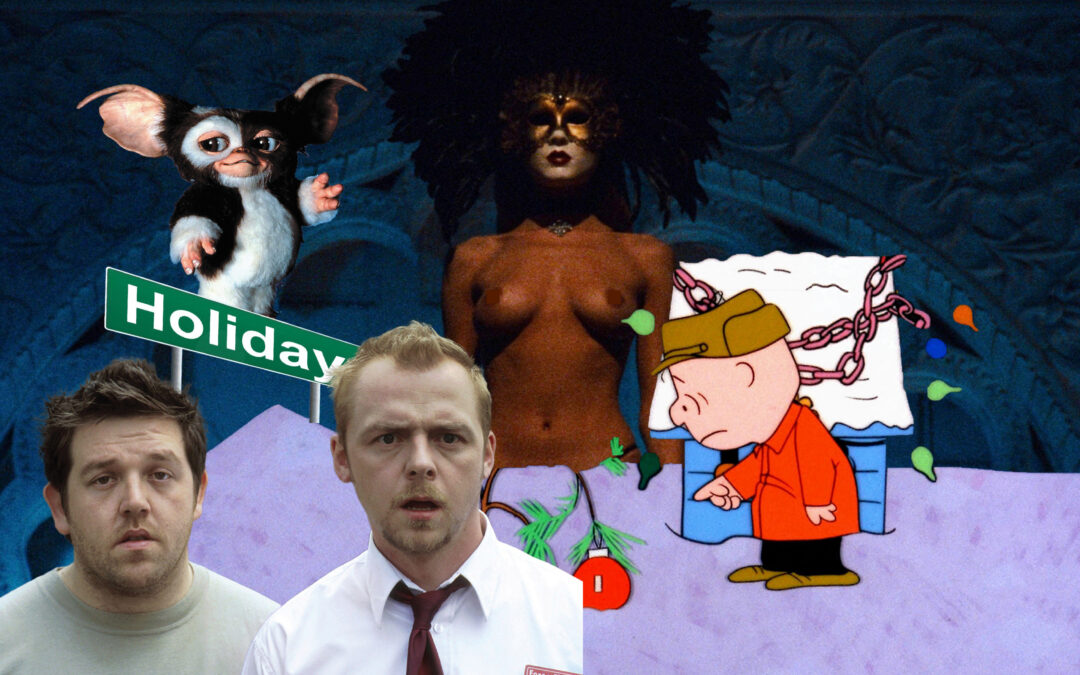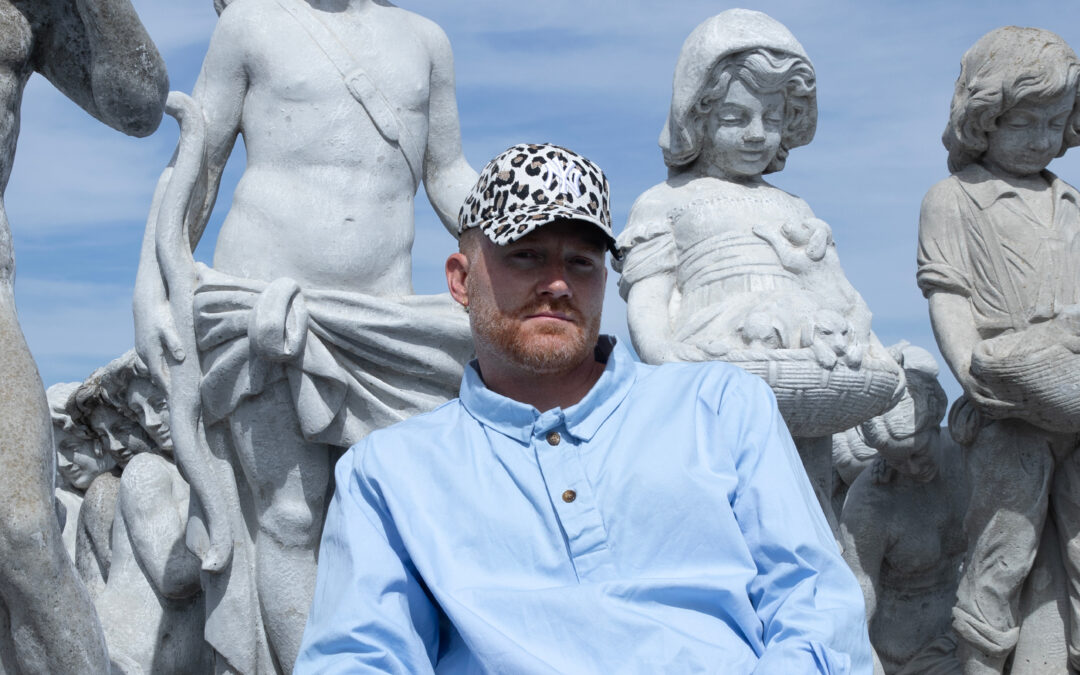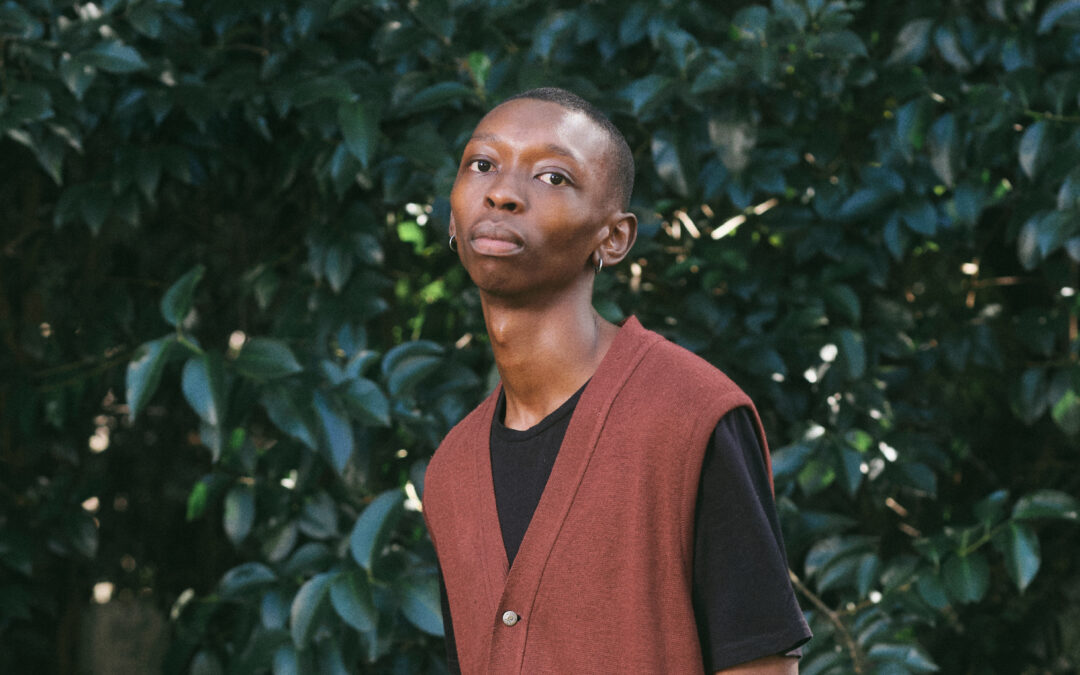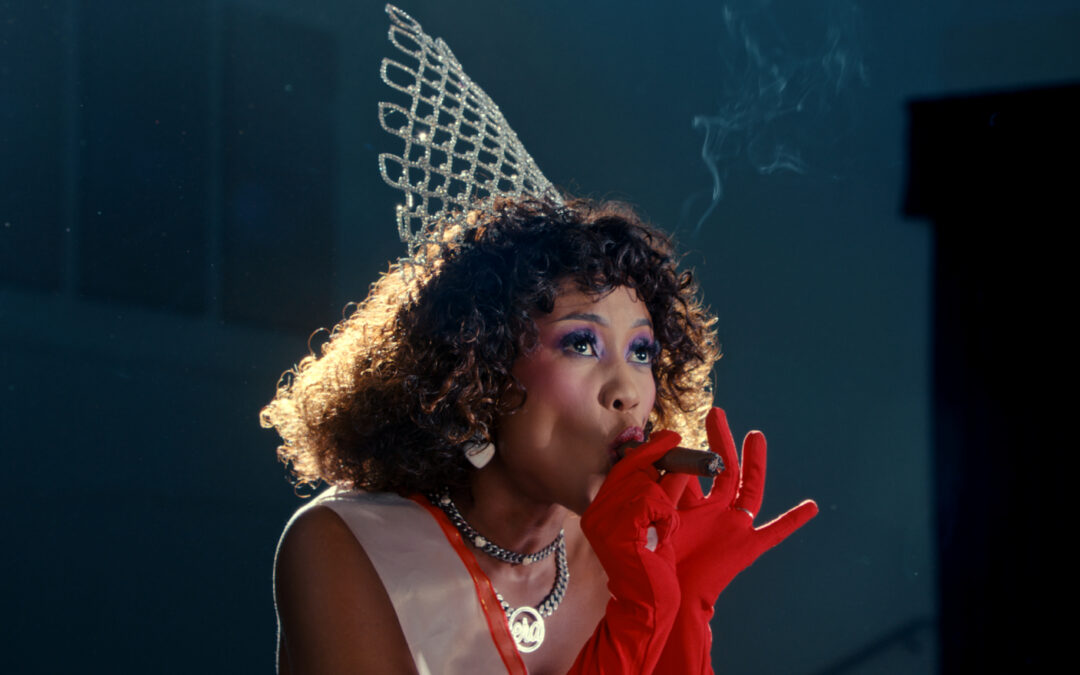Gabriel Hope’s ‘Ex Hotel’ defies the conventional boundaries of hospitality. Mostly because it doesn’t really exist.
It has all the elements of a hotel; a front desk, a bar, a gift shop and even a guest book. These details are part of a larger conception, though – that of a furniture studio, steeped in a fictional concept rather than a place to physically check into. Although, I believe some patrons have tried to book. Gabriel, as proprietor and concierge, sought the vessel of ‘conceptual accommodation’ in order to contain his myriad of ideas – for now, this is centred around furniture. More sweepingly, Ex Hotel is a site for ideas. For Gabriel, a slightly run-down hotel from a bygone era still boasts some well-made, enduring fittings; echoing an era in which things were made well, by people who care about what they made, making a hotel his perfect paracosm of choice. In our conversation, I realise that as a furniture designer – whose focus is form and function – Gabriel’s inclination for imagination reveals an artistic concern that isn’t always overt in the very practical realm of furniture. The brilliance of Ex Hotel, aside from its incredible furniture, reveals a tongue-in-cheek lens through which to peer into the very precise and elevated practice of design; is as refreshing as the first welcome drink after a long flight or drive en-route a holiday.
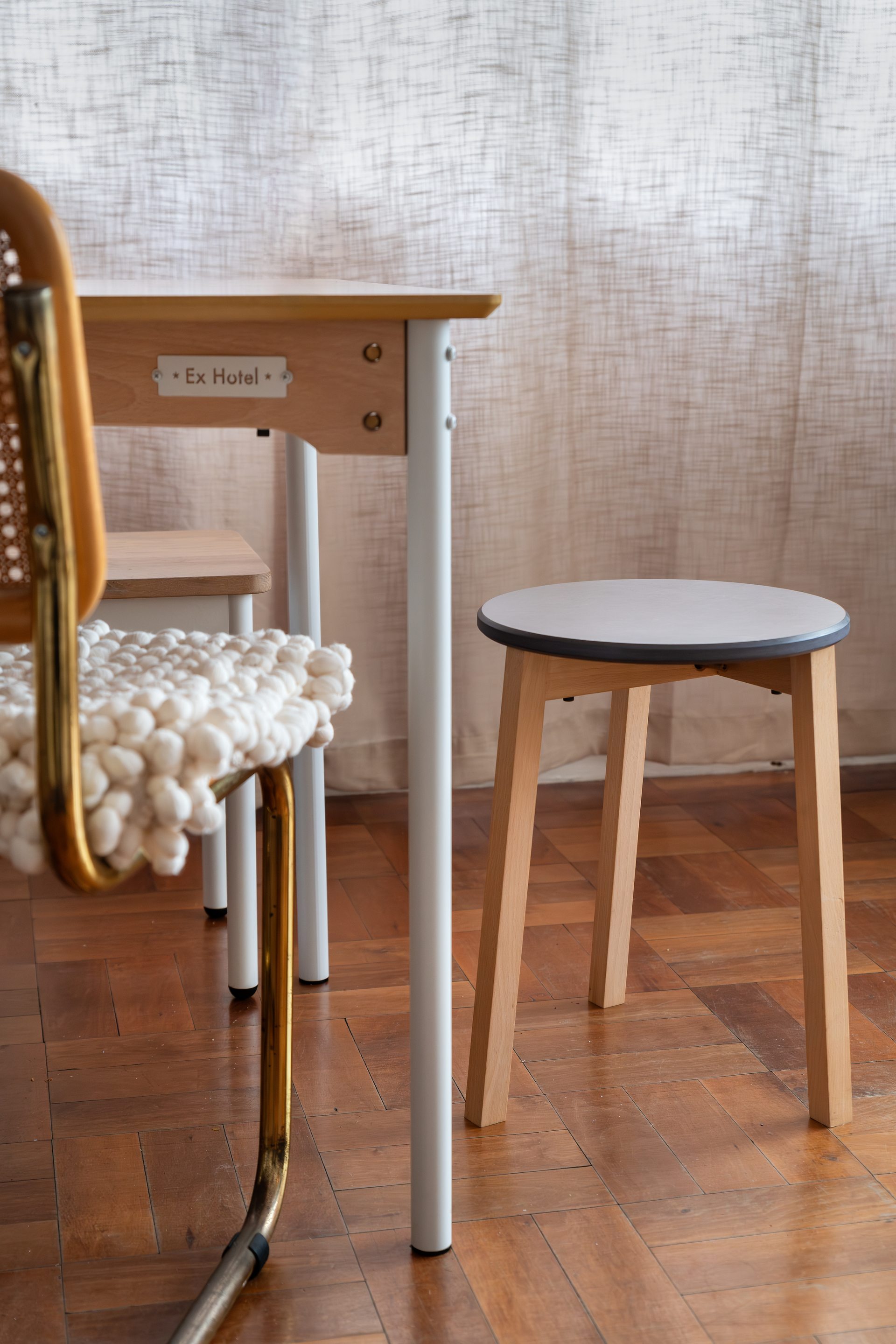
Ex Hotel photographed by Paris Brummer
Ex Hotel details photographed by Gabriel Hope
Ex Hotel photographed by Paris Brummer
As the son of a furniture designer, Gabriel has worked with tools most of his life – but his own foray into the practice is less a story of lineage craftsmanship and more a response to his years as a student assisting classmates with building, or his own penchant for certain furniture. Gabriel explains, “I studied fine art and I spent a lot of time during that degree helping other people realise aspects of their work that they weren’t able to do. I found myself more interested in helping people make their own art than I was in making my own. Also, as a student I couldn’t necessarily afford any of the furniture that I wanted – so I often made it to varying degrees of success. I would get so caught up in the design phase over excruciating details. Honestly, it took me four years to make a bed for my entire degree – and it actually never ended up getting made.”
As is true for most fine art graduates, the impossibility of deciding a possible future saw Gabriel do what he knew best; learning and helping artists in the most practical details of their work, “after university, there is this massive ‘nothing’. Especially if your degree doesn’t offer a clear professional outcome like a doctor or a lawyer. So I ended up working for two sculptors, Serge Nitegeka and Wim Botha, through the Stevenson Gallery. Honestly I learned most of what I know through being around them. Especially Wim, some of what he makes incorporates principles of furniture design or making even if the outcome is far from furniture.”
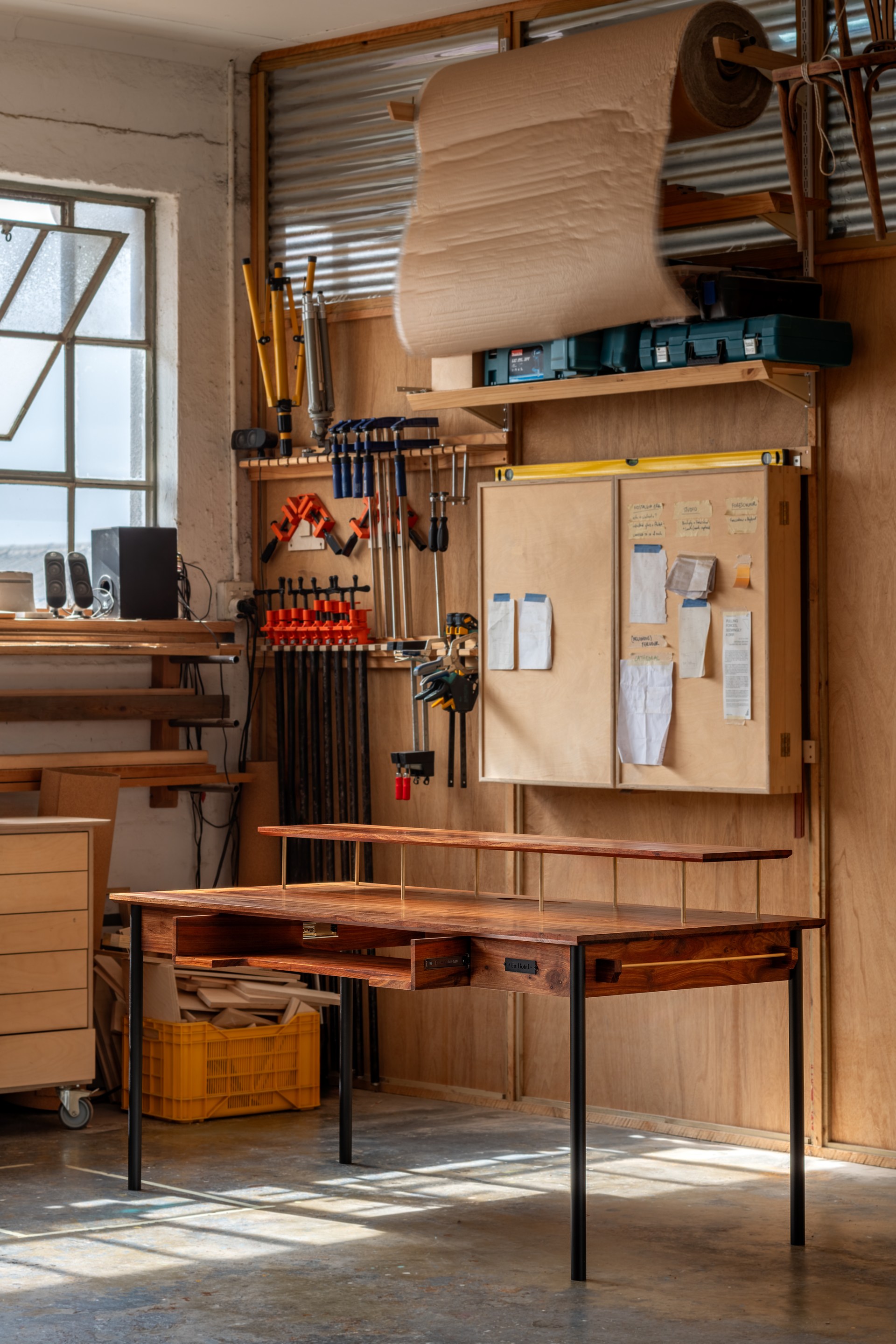
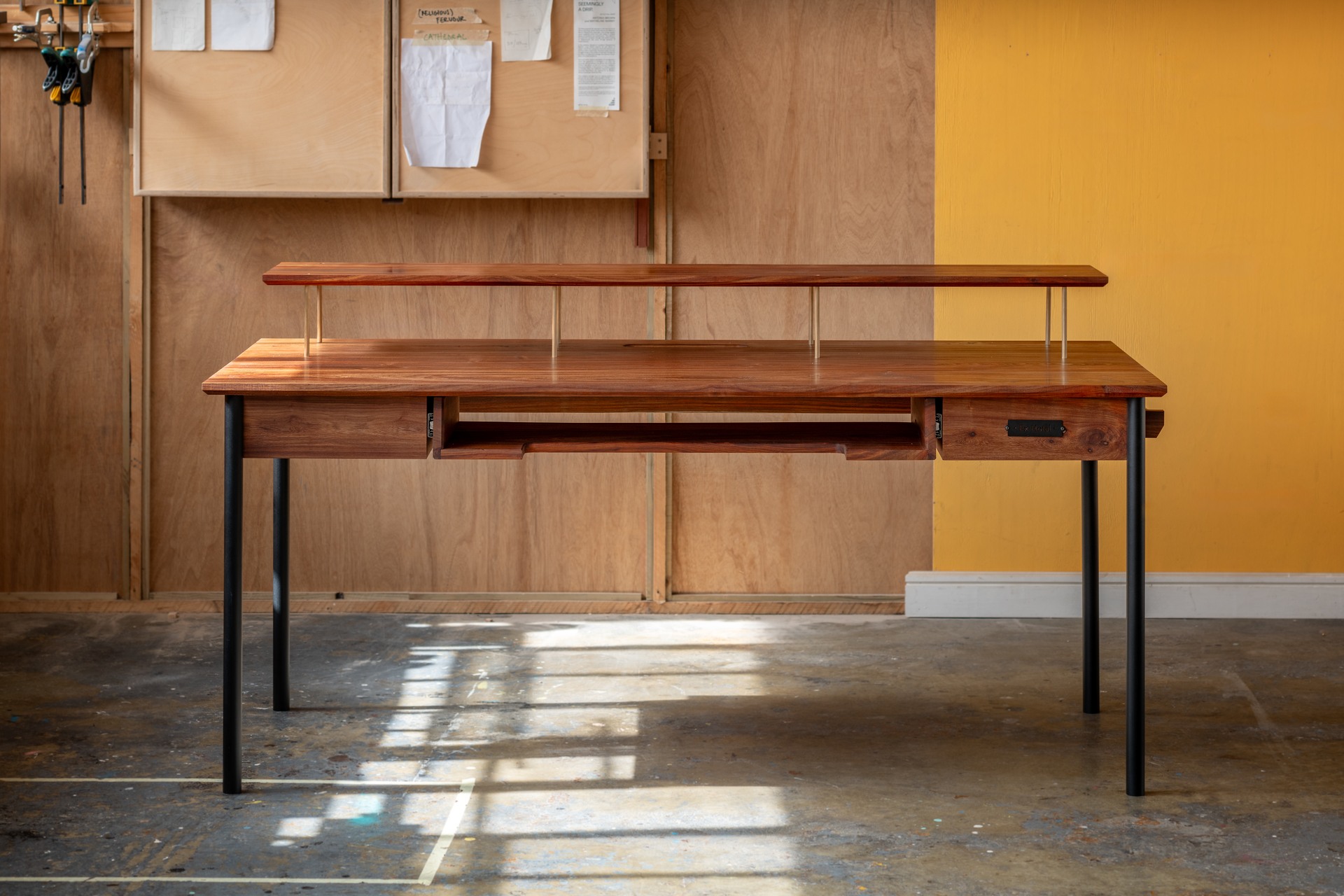
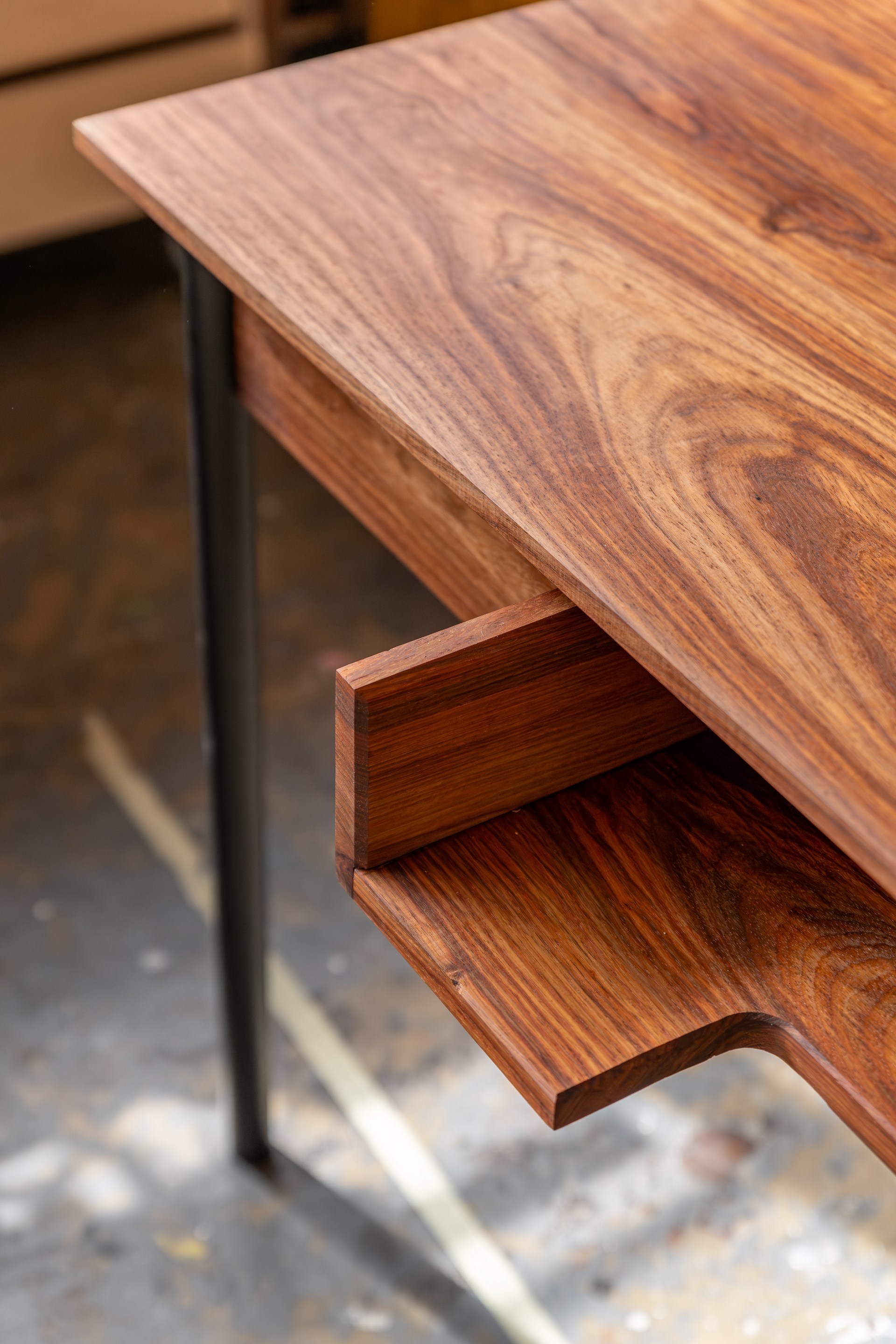
Ex Hotel photographed by Paris Brummer
Ex Hotel references the Latin preposition meaning ‘from’ – and the studio’s origin in the world dates back to the pandemic. Although, I suspect that building paracosmic worlds has probably always been a part of how Gabriel has interfaced with reality. As he says, “if I think back, I don’t think I ever agreed to owning a furniture company. But there was something I was trying to do, which was needing to find a place in which my ideas could live. So I gave them a hotel to live in. They exist there until they’re ready to become ‘a thing’, which at the moment is mainly furniture.”
A hotel is this strange, liminal space within the human experience; it’s a place to rest, but not one’s home. Some might live there, but generally its a fleeting experience – and like how we might find our own contexts and realities suspended for a moment when stepping into a hotel, so Ex Hotel serves this primary function of being ‘a space in between’ that is fictional, but actually offers real things, “the reason it’s a hotel goes back to how I tend to think about things. The agility that a hotel provides – of living quarters – is obviously great for furniture, but there are also many rooms to be explored or experiences to be had. The idea of a fictional hotel has the possibility to become something continuous and beyond a furniture studio. I don’t know that my work will always revolve around furniture, so to have a space like ‘Ex Hotel’ that can serve or become different things is a lot more freeing.”
Ex Hotel embodies all the most alluring aspects of post-WW2, mid-century design sentiments. Though certainly not confined to this era, nor is the reference even so overt in Gabriel’s work, the studio’s work finds the clean lines and functional simplicity as principal concerns – as Gabriel says, “I use materials that are quite basic: glass, brass or wood but that have this timeless and enduring quality to it. More recently I’ve been getting into laser-cut steel which is incredible. I definitely tend towards a slimline, thin and slender aesthetic – I want things to feel airy and light. Wood can only give you so much with that, so steel has been useful in that way.” This harmonisation of natural and industrial makes Ex Hotel a furniture studio for whom purpose and aesthetic are mutually and inclusively, intertwined.
Ex Hotel photographed by Paris Brummer
The slightly surreal way of conceptualising a studio (or even just one’s offering to the world) is fantastic. Ex Hotel represents, with total elevation and elegance, the notion that fantasy is fundamental to being alive – or at least, it should be. I ask Gabriel if there are any ways in which the narrative of the hotel takes shape outside of furniture, to which he says “it’s a fictional hotel that has aspects to it that protrude into the real world. There’s obviously no hotel – although, for some people it’s not obvious. Something like the bar taking over Leo’s, brings Ex Hotel into the real world without it needing to be a permanent, physical fixture.”
In terms of the future, Ex Hotel might start appearing more and more in the real world. For Gabriel, it is becoming more and more apparent that furniture might not be the sole endeavour of the studio; “there was a time when you could buy a room key. Currently, we’re fully booked – but I do have plans to build another wing. The idea for that is that the key will elicit different benefits or experiences overtime. I know this sounds a bit like a club, but it’s more like trying to find a way for Ex Hotel to be part of different experiences. Giving someone something like a room key or a piece of stationary, also invites people into how the space could evolve – you could fill in the gaps better narratively than I could ever run an actual hotel. I’m really interested to see how that plays out.”
While you might not be able to spend the night at the Ex Hotel, their offering is, I believe, precisely how the hotel is furnished. I suggest purchasing a keepsake (definitely) or keeping a look out for any of the hotel’s adjacent experiences; as for the concierge and proprietor, I can only expect a continued injection of amusement and precision in all that he does going forward.
Cover image of Ex Hotel photographed by Paris Brummer
Written by: Holly Beaton

